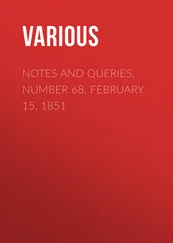Various - Imperialism and Mr. Gladstone
Здесь есть возможность читать онлайн «Various - Imperialism and Mr. Gladstone» — ознакомительный отрывок электронной книги совершенно бесплатно, а после прочтения отрывка купить полную версию. В некоторых случаях можно слушать аудио, скачать через торрент в формате fb2 и присутствует краткое содержание. Жанр: История, foreign_edu, на английском языке. Описание произведения, (предисловие) а так же отзывы посетителей доступны на портале библиотеки ЛибКат.
- Название:Imperialism and Mr. Gladstone
- Автор:
- Жанр:
- Год:неизвестен
- ISBN:нет данных
- Рейтинг книги:4 / 5. Голосов: 1
-
Избранное:Добавить в избранное
- Отзывы:
-
Ваша оценка:
- 80
- 1
- 2
- 3
- 4
- 5
Imperialism and Mr. Gladstone: краткое содержание, описание и аннотация
Предлагаем к чтению аннотацию, описание, краткое содержание или предисловие (зависит от того, что написал сам автор книги «Imperialism and Mr. Gladstone»). Если вы не нашли необходимую информацию о книге — напишите в комментариях, мы постараемся отыскать её.
Imperialism and Mr. Gladstone — читать онлайн ознакомительный отрывок
Ниже представлен текст книги, разбитый по страницам. Система сохранения места последней прочитанной страницы, позволяет с удобством читать онлайн бесплатно книгу «Imperialism and Mr. Gladstone», без необходимости каждый раз заново искать на чём Вы остановились. Поставьте закладку, и сможете в любой момент перейти на страницу, на которой закончили чтение.
Интервал:
Закладка:
[Note. – This was Disraeli's last speech as a member of the House of Commons. He was raised to the peerage on August 12, 1876.]
SIR THEOPHILUS SHEPSTONE'S COMMISSION (1877)
Whereas grievous disturbances have broken out in the territories adjacent to Our colonies in South Africa, with war between the white inhabitants and the native races, to the great peril of the peace and safety of Our said colonies; and whereas, having regard to the safety of Our said colonies, it greatly concerns Us that full inquiry should be made into the origin, nature, and circumstances of the said disturbances, and with respect to the measures to be adopted for preventing the recurrence of the like disturbances in the future; and whereas it may become requisite to this end that the said territories, or portions of them, should be administered in Our name and in Our behalf.
Now know you that We, having especial trust and confidence in the loyalty and fidelity of you, the said Sir Theophilus Shepstone, have appointed you to be Our special Commissioner for the purpose of making such inquiry as aforesaid … and if the emergency seem to you to be such as to render it necessary, in order to secure the peace and safety of Our said colonies, and of Our subjects elsewhere, that the said territories, or any portion or portions of the same, should be provisionally, and pending the announcement of Our pleasure, be administered in Our name and on Our behalf, then, and in such case only, We do further authorize you, the said Sir Theophilus Shepstone, by proclamation under your hand, to declare that from and after a day to be therein named, so much of any such territories aforesaid as to you, after due consideration, shall seem fit, shall be annexed and form part of Our dominions.
And We do hereby constitute and appoint you to be thereupon Administrator of the same provisionally and until Our pleasure is more fully known.
Provided, first, that no such proclamation shall be issued by you with respect to any district, territory, or state, unless you shall be satisfied that the inhabitants thereof, or a sufficient number of them, or the Legislature thereof, desire to become Our subjects; nor if any conditions unduly limiting Our power and authority therein are sought to be imposed…
RUSSIA DECLARES WAR ON TURKEY (1877)
We have not a word to say in defence of the Porte. We admit that it was guilty, as Lord Salisbury has confessed, of infatuation when it defied the Conference, and that it would have accepted even the Protocol, if it had possessed a tithe of the sagacity which was once a better protection of its weakness than ironclads are to-day. We may even admit that the Protocol was, what Prince Gortchakoff styles it, the last expression of the united will of Europe. But his story is fatally incomplete. It would have been desirable to know whether Russia has done her best to make it easy for Turkey to accept the undisguised tutelage of the European Powers. That question calls to mind how much the fanaticism of the Turks was inflamed by the covert aid which Russia gave to Servia. The Czar refers to the famous words which he spoke in the Kremlin. They were indeed the real declaration of war, for they prevented Russia from accepting anything less than the complete submission of Turkey. Russia might plead, no doubt, that as war was certain to be found an absolute necessity in the end, it mattered little how rudely she ruffled the Osmanli pride. But in that case the negotiations of the past two years have been a series of hypocrisies. As it is, the general judgment is expressed by what Lord Derby said last night. While he found it hopeless to bend the will of Turkey towards submission, he equally found on the part of her Government "a deeply seated conviction that, do what they would, sooner or later war would be forced upon them." He believed that he and his colleagues have throughout been "engaged in the solution of a hopeless problem." Such, we fear, is the prosaic truth, and, whatever be the measure of Turkish obstinacy, Russia cannot escape condemnation. She has sometimes acted as if she wished to cut off a way of retreat both from herself and her foe… Russia has hastened to stop all further negotiations, and to act as if she and she alone had an interest in the tranquillity of the Turkish Empire. Thus she has forfeited any right to speak in the name of Europe. Nor has she given the Powers assurances which they had a right to expect. Nothing is said in the same strain as the declarations at Livadia, that Russia had no objects of territorial ambition… The Czar has committed a grave error by neglecting to proclaim that in no event would he seize Turkish territory.
IRISH OBSTRUCTION IN ITS EARLY DAYS (1877)
Mr. Parnell and his special friends greatly distinguished themselves in the House of Commons last night by the multiplicity of the motions in committee on the South Africa Bill. The Government adopted special means to wear out the tenacity of the members who thus consume hour after hour, for it had arranged that the House should sit until the work should be done, even if the discussion should last till breakfast time. But it does injustice to Mr. Parnell. He is the most misunderstood and most ill-used man in the House of Commons. Such is the burden of the long letter from him which we printed on Monday. He has been accused of trying to stop public business by floods of irrelevant speech. He has been charged with something like open disrespect for the authority of Mr. Speaker. He has been suspected of a wish to make Irish members intolerable, in the hope that weary Englishmen and Scotchmen would bid them begone to enjoy the beatitudes of Home Rule. He has made the Leader of the House, although the mildest of men, propose to banish him to the penal settlement of silence, and the House has done him the honour of framing two new rules to impede the flow of his speech during the rest of the Session… The incorrectness of that accusation, he replies, is proved by the comparatively small use he has made of almost boundless opportunities. If his enemies speak of what he has done, he appeals to what he might have done. Has he obstructed every clause of every Bill? Has he even obstructed every Bill? Has he exhausted all the forms of the House even yet? These questions oppress us with a sense of his moderation. If he has done so much, he might have done so much more! As most Bills have at least ten clauses, as most clauses contain at least a hundred words, and as at least one amendment might be moved after each word, Mr. Parnell could have opposed each Bill with at least a thousand amendments, and he himself, Mr. Biggar, and Mr. O'Donnell could each have delivered at least a thousand speeches.
PLEVNA AFTER THE SIEGE (1877)
As I rode up the slope of the hill east of Plevna towards the redoubt defending the road between the town and the village of Radicheve, a ghastly scene was presented. Hundreds of Russian skeletons lay glistening on the hillsides, where they had fallen during the assault of September. The bones were generally completely bare. Those nearest to the earthwork had been covered with a few inches of earth, which had been washed off by the first shower, and now they lay as naked as the others. The Moslem outpost pits were among these skeletons, many of them not being more than a yard distant. Singular as it may seem, many of these skeletons had distinct expressions, both in the attitude in which they had fallen and in the position of the fleshless jaws. I could distinguish those who had fallen without suffering from those who had died in agony, and the effect was such as I shall never forget. The Russian soldiers who marched into Plevna in the rear of Osman's sallying force passed among these remains of their unburied comrades… On entering the town I was surprised to find it so little injured by the cannonading…
Читать дальшеИнтервал:
Закладка:
Похожие книги на «Imperialism and Mr. Gladstone»
Представляем Вашему вниманию похожие книги на «Imperialism and Mr. Gladstone» списком для выбора. Мы отобрали схожую по названию и смыслу литературу в надежде предоставить читателям больше вариантов отыскать новые, интересные, ещё непрочитанные произведения.
Обсуждение, отзывы о книге «Imperialism and Mr. Gladstone» и просто собственные мнения читателей. Оставьте ваши комментарии, напишите, что Вы думаете о произведении, его смысле или главных героях. Укажите что конкретно понравилось, а что нет, и почему Вы так считаете.












